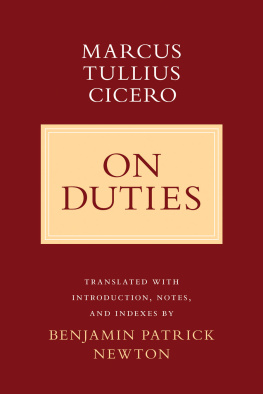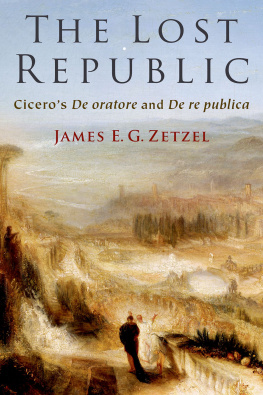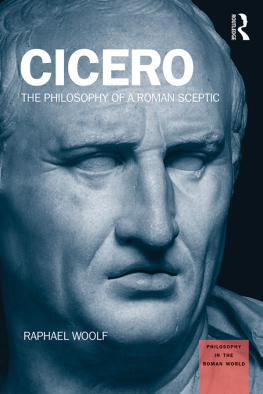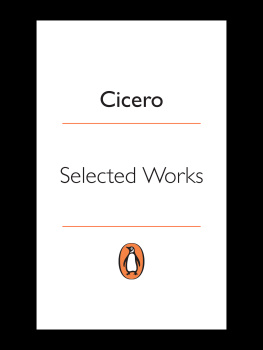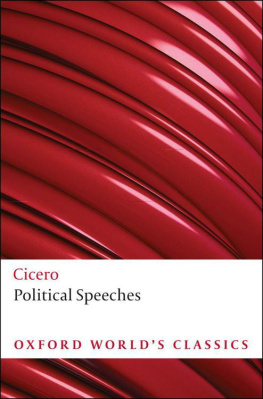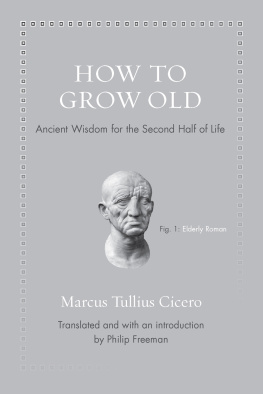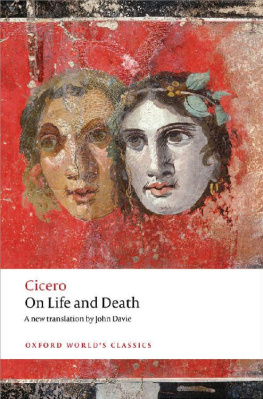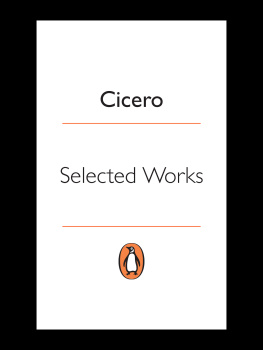Acknowledgments
Stem, and Steve Tuck have all provided academic, moral, and professional support along the way, for which I am ever in their debt. Completion of this project was greatly facilitated by the support of my exceptional friends and colleagues at UNCG: Hugh Parker, Susan Shelmerdine, Maura Heyn, Bob Simmons, and Joanne Murphy. Dave Whartons Latinity and knowledge of Plato proved especially valuable in the final stages of composition.
I will do what you ask, as best as I am able, and now will begin my discussion according to the rule which I think ought to be used in such discussions, if you wish to avoid causing confusion, that if the term for what is under discussion is agreed upon, then the meaning of that term ought to be explained. If we agree on the meaning, then the discussion can begin, for the attributes of the term under discussion cannot be understood unless we first understand what the term actually is. Therefore, since we are discussing the State, we should first see what exactly it is that we are discussing.
De Re Publica 1.38
With these words Scipio, the chief interlocutor of Ciceros De Re Publica, begins his long discourse de optimo statu civitatis et de optimo cive, about the best type of constitution and the best type of citizen (Q.fr. 3.5.1). Over the six books of De Re Publica Scipio engages in a wide-ranging exposition covering not only constitutional matters but religion, law, and philosophy. Scipios focus throughout, however, remains firmly on the res publica and a figure called the rector et gubernator rei publicae, the director and helmsman of the state (Rep. 2.51). The rector rei publicae occupies a prominent position throughout the work. Though the text of De Re Publica has been egregiously damagedonly about one-quarter of the work has been preservedthe themes of the missing sections of the dialogue can be reconstructed with some measure of certainty.
Sir Ronald Syme once famously dismissed De Re Publica as a book about which too much has been written.with such a badly preserved work, it seems that De Re Publica is a book about which not enough has yet been written. Since the publication of Karl Bchners commentary in 1984 there has been a resurgence of interest in Ciceros treatise on the State. It has been the subject of no fewer than seven critical editions, including the first Oxford Classical Text in 2006, four English translations, and a great number of articles by classicists, philosophers, and political scientists. Yet despite the attention paid to both De Re Publica in general and the rector rei publicae in particular, there is still disagreement about the exact role of the ideal statesman within the dialogue and whether or not it played a role in Ciceros philosophy outside of De Re Publica. Ciceros discourse on the Statethe capitalization is intentionalhas been enjoying a renaissance in the last two decades. I hope to add a new interpretation of one aspect of De Re Publica to the discussion, and by doing so resurrect the ideal statesman as an integral part of Ciceros life-long political philosophy.
The arguments set out in this book rely on two main assumptions. I assume, first and foremost, that Cicero was a pragmatic politician who, despite his periods of lugubrious and self-pitying despair, navigated the political upheaval of the Late Republic with careful consideration of his own position and the future of the Republic. Attendant with this first assumption is the belief that it is possible to tease out threads of commonality across different genres and decades. The problem of genre is an omnipresent obstacle in the study of Cicero and his convictions. Yet in the end all of Ciceros works were written by the same man. While generic differences must by necessity influence our reading of the speeches, or the treatises, or the letters, we should not simply presume on all occasions the presence of a persona which obscures the personal thoughts and goals of the author.
I offer three primary conclusions in this book. First, I establish the profound influence which Academic skepticism exerted on Ciceros political philosophy and the creation of his concept of the ideal statesman. Though the skeptics considered Plato their founder, the term skeptic generally denotes the teachings of the Academy under the series of scholarchs from Arcesilaus to Carneades (c. 269138 BCE ); this period, in the main, represents the type of skepticism practiced by Cicero. However, I follow Gisela Striker in defining skepticism not by a time period but by the characterization of its function as containing For Cicero to be a skeptic, as he repeatedly claimed that he was, was to embrace an ideology that required not only rigorous inquiry into any topic but also consideration of the practicality of both the inquiry itself and its results.
During the 50s Cicero embarked on a period of skeptical inquiry which resulted in three political-philosophical works: De Oratore, De Re Publica, and De Legibus. Skepticism surely played a substantial role in Ciceros deliberations on the function and fate of the Republican constitution. He realized as early as 59 that the Republic had been seriously crippled, if indeed it had not already passed into history. To be sure, Ciceros preference was for the continuation of the mixed constitution. De Re Publica is full of positive statements concerning the Roman constitution; it is, in fact, the best form of government ever devised by man (Rep. 1.45, 69). Any serious philosophical investigation into the Roman State would have revealed, especially to such a politically engaged citizen as Cicero, that the Republic of Scipio Aemilianus was fit only for the pens of historians. Furthermore, as part and parcel of a thorough scrutiny of the res publica, Cicero would have been required to consider, or at least to reconsider, the suitability of monarchial power for the Roman State. Ciceros forgiving attitude towards greater individual power is reflected in his admiration in


